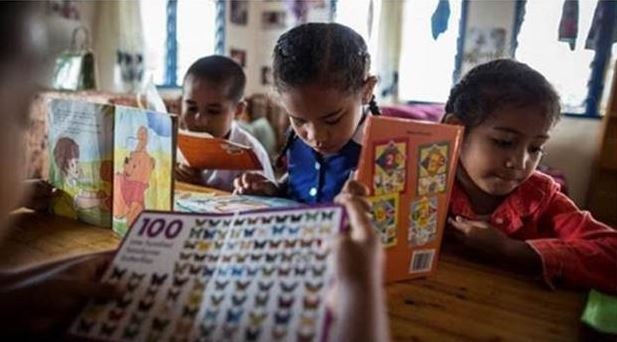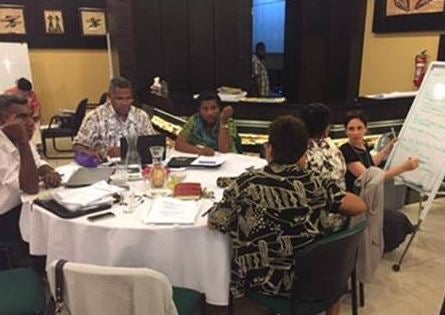
Investments in the early years of children’s lives and in the first grades of their education are among the most important actions governments can take. So said the Prime Minister and Minister of Education of Tonga, the Honourable Samuela ‘Akilisi Pohiva.
Pacific countries are doing well in terms of getting their children into primary school and ensuring completion. Despite this progress over the years, however, decision-makers are concerned over learning outcomes.
Literacy and numeracy assessments in the Pacific reveal some improvements for year 4 and 6 students, yet literacy remains a significant problem with more than half of children in grades 4 and 6 not meeting the regional benchmarks. Early reading assessments in 2009 revealed that only 3 out of 10 children in Tonga and 2 of 10 in Vanuatu in grade 3 could read and comprehend what they read. Clearly, literacy issues start early. On the basis of these results, the Pacific Early Age Readiness and Learning (PEARL) was designed to address school readiness and improve early grade literacy across the Pacific.
With two main interventions: (1) school readiness through community play-based activities (CPBA) and (2) literacy interventions through “Come Lets Read and Write” (CLRW), the bottom line is that both components are working with significant economic benefits to the people of Tonga.
The four-day workshop, part of the PEARL program, which the Bank implements with funding from the Global Partnership for Education (GPE), attracted more than 50 participants from eight Pacific Island countries, along with development partners and practitioners. It was an honor for me to be invited to offer opening remarks and a speech on the benefits of education. The PEARL program promotes early childhood development practices and early reading. PEARL pilots a range of teaching and learning methods. And after just two years of implementation, we are already seeing significant improvements in learning outcomes.
The PEARL program in Tonga provides:
- Community-based parent-child playgroups
- Partnership between government and non-government preschool providers
- Public awareness campaigns
- Comprehensive in-service teacher training to improve skills on teaching reading
- Teaching and learning materials
- Surveys on school readiness and early grade reading
- Developing early years country roadmap to assist implementation of country sectoral plan and priorities
- Knowledge-sharing and knowledge transfer
- More than 2000 children in 49 communities have benefited from the play groups
- Parents in play-groups increasingly doing more activities with their children
- RCT shows significant reading gains, on average 0.24 Standard Deviations in just one academic year
- Cost per child of $67, and a new present value estimated at $479
- Benefit-cost ratio – evaluated only with future labor market earnings – almost 5:1
- Literacy program benefits more than 25% of class 1 and 2 teachers, more than 2400 students
- Reading instruction already better and more focused
- Large improvements in reading, ranging from half to full school year advance
- Cost per child is $183, and a net present value estimated at $792
- Benefit-cost ratio – evaluated only with future labor market earnings – is 4:1
Follow the World Bank education team on Twitter @wbg_education.


Join the Conversation